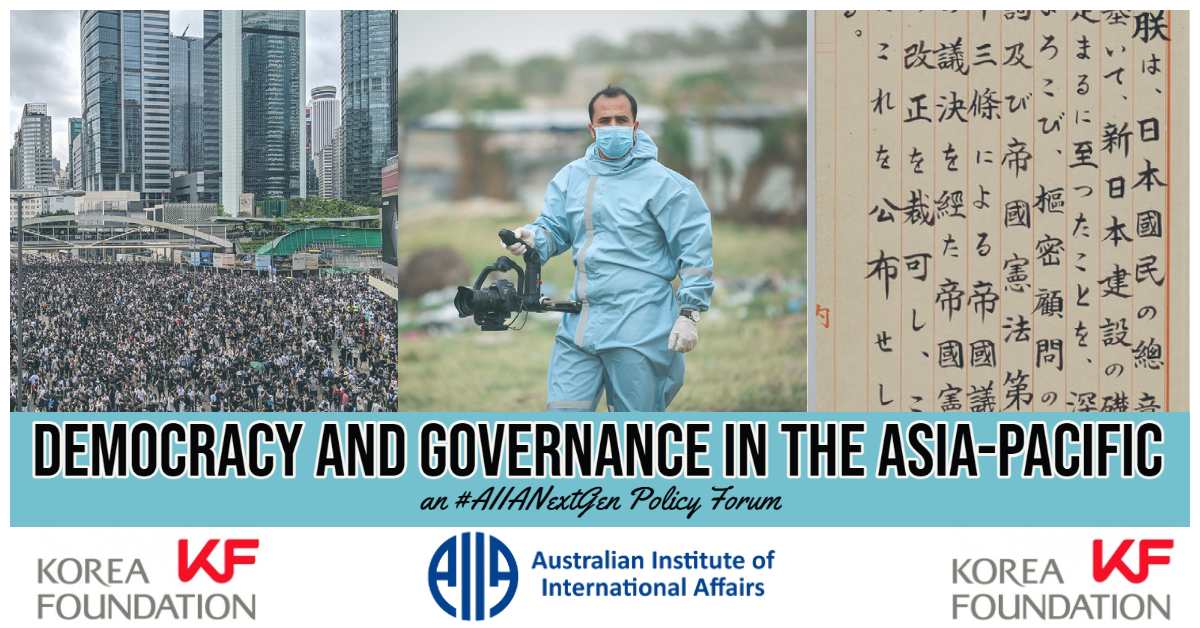Democracy and Governance in the Asia-Pacific
CLICK HERE to register for this event.
Day One: November 9, 2021
Panel One: Democratic Practice during COVID-19 in the Asia-Pacific
10:00 AM – 11:15 AM
Over the past eighteen months, governments have exercised tremendous power over the individual lives of citizens. From defining how people could move about and interact with one another to mandating the use of personal protective equipment, individuals were required to keep up with the regularly changing rules, assuming a greater awareness of the ways in which government actions impact daily routines. No two governments have addressed the spread of COVID-19 in exactly the same way, and though personal movement is restricted, those differences have been on full display through the lens of traditional and social media. How do journalists operate in such an environment? What is the relationship between the state and citizens, and how has that relationship changed since the onset of the pandemic? What changes are temporary, and what changes are likely to become a permanent feature of democratic practice in the Asia-Pacific?
Speakers

Associate Professor Jennifer Lees-Marshment works at The University of Auckland in New Zealand. Jennifer is a research-led but practice-oriented cross-disciplinary academic working in the areas of Political Marketing, Political Management and Political Leadership. She is author/editor of 17 books, a world expert in political marketing and A-rated in the NZ research assessment (PBRF 2018/2012). Jennifer was lead Academic Advisor to TVNZ’s Vote Compass (2014, 2017, 2020) which engaged over a million members of the public in discussing politics and policy. She also facilitated the University and TVNZ partnering to host the 1 News Young Voters Debate in 2017 and 2020. Jennifer won the International Association for Public Participation Research Award for Australasia and was appointed to Chair the NZ Magna Carta 800th anniversary committee in 2015. She is editor of the book series Palgrave Studies in Political Marketing and Management, lead author of Political Marketing: Principles and Applications 3rd ed. (Routledge 2019) and author of Political Management: The Dance of Government and Politics (Routledge 2020). See www.lees-marshment.org.
 Professor Kim Walsh-Childers is a former newspaper health reporter who has taught at the University of Florida since 1990. She received her undergraduate degree from the University of Missouri-Columbia and her master’s and Ph.D. from the University of North Carolina-Chapel Hill. At UF, Walsh-Childers has taught undergraduate courses in newswriting, magazine and feature-writing, journalism ethics and solutions journalism. Most recently, she has co-created and co-taught a course aimed at helping non-journalism majors understand how to find trustworthy news sources and how to evaluate the impact of quality journalism on state and local government. At the graduate level, she has taught journalism and media ethics courses, mass communication theory and a long-running graduate seminar in mass media effects on health. Dr. Walsh-Childers’ research focuses on the role of media, particularly news coverage, in influencing individual health beliefs and behaviors and the development of health policy. She is the author of Mass Media and Health: Examining Media Impact on Individuals and the Health Environment (Routledge, 2017), and is currently co-editing a handbook of science and health journalism (with Dr. Merryn McKinnon of Australian National University). Her work has been published in Health Communication, Journalism and Mass Communication Quarterly, Newspaper Research Journal, Science Communication, Journal of Mass Media Ethics, American Journal of Men’s Health, and Australian Review of Journalism, among others. Her research has been supported by grants from Association for Education in Journalism and Mass Communication’s Senior Scholar Program, the Kaiser Family Foundation, the Robert Wood Johnson Foundation, the National Cancer Institute and the U.S. Department of Defense. She was a Fulbright Scholar in Ireland during the 2004-2005 academic year. Kim and her husband, a potter-turned-journalist-turned-potter again, have two adult sons and live in the country with a cat, a ball-chasing-obsessed Labrador retriever, a beagle mix who barks above her weight, and two horses, one of whom actually consents to being ridden occasionally.
Professor Kim Walsh-Childers is a former newspaper health reporter who has taught at the University of Florida since 1990. She received her undergraduate degree from the University of Missouri-Columbia and her master’s and Ph.D. from the University of North Carolina-Chapel Hill. At UF, Walsh-Childers has taught undergraduate courses in newswriting, magazine and feature-writing, journalism ethics and solutions journalism. Most recently, she has co-created and co-taught a course aimed at helping non-journalism majors understand how to find trustworthy news sources and how to evaluate the impact of quality journalism on state and local government. At the graduate level, she has taught journalism and media ethics courses, mass communication theory and a long-running graduate seminar in mass media effects on health. Dr. Walsh-Childers’ research focuses on the role of media, particularly news coverage, in influencing individual health beliefs and behaviors and the development of health policy. She is the author of Mass Media and Health: Examining Media Impact on Individuals and the Health Environment (Routledge, 2017), and is currently co-editing a handbook of science and health journalism (with Dr. Merryn McKinnon of Australian National University). Her work has been published in Health Communication, Journalism and Mass Communication Quarterly, Newspaper Research Journal, Science Communication, Journal of Mass Media Ethics, American Journal of Men’s Health, and Australian Review of Journalism, among others. Her research has been supported by grants from Association for Education in Journalism and Mass Communication’s Senior Scholar Program, the Kaiser Family Foundation, the Robert Wood Johnson Foundation, the National Cancer Institute and the U.S. Department of Defense. She was a Fulbright Scholar in Ireland during the 2004-2005 academic year. Kim and her husband, a potter-turned-journalist-turned-potter again, have two adult sons and live in the country with a cat, a ball-chasing-obsessed Labrador retriever, a beagle mix who barks above her weight, and two horses, one of whom actually consents to being ridden occasionally.
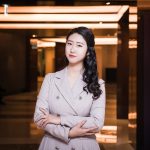 Jinkyung Baek is the Director of the Research Department at the East Asia Institute. She received her M.A. in International Relations from the University of Warwick in the United Kingdom. Currently, she supervises all the research projects at EAI, but her individual work mainly focuses on national security, regional cooperation and democracy in Asia, and governance. Her research interests include North Korea, international relations, and international security. Her recent publications include “South Korean Perception of North Korea and Unification: The Future of the Korean Peninsula, Neighbor rather than Brother” (EAI Issue Briefing, 2020), “Present and Future of the Four-Point Strategy Toward North Korea” (Global NK Commentary, 2020), “Mid-term Assessment of the Moon Jae-in Administration’s Diplomatic Security Policy through Public Opinion: The Drive for North Korea Policy to Realize Peace and Prosperity on the Korean Peninsula“ (Global NK Commentary, 2019), and “North Korea’s Biological and Chemical Weapons and the Path to Denuclearization” (Global NK Commentary, 2019).
Jinkyung Baek is the Director of the Research Department at the East Asia Institute. She received her M.A. in International Relations from the University of Warwick in the United Kingdom. Currently, she supervises all the research projects at EAI, but her individual work mainly focuses on national security, regional cooperation and democracy in Asia, and governance. Her research interests include North Korea, international relations, and international security. Her recent publications include “South Korean Perception of North Korea and Unification: The Future of the Korean Peninsula, Neighbor rather than Brother” (EAI Issue Briefing, 2020), “Present and Future of the Four-Point Strategy Toward North Korea” (Global NK Commentary, 2020), “Mid-term Assessment of the Moon Jae-in Administration’s Diplomatic Security Policy through Public Opinion: The Drive for North Korea Policy to Realize Peace and Prosperity on the Korean Peninsula“ (Global NK Commentary, 2019), and “North Korea’s Biological and Chemical Weapons and the Path to Denuclearization” (Global NK Commentary, 2019).
11:15 AM – 11:30 AM: Break
Panel Two: Constitutionalism in the Asia-Pacific
11:30 AM – 12:45 PM
Systems of government in the Asia-Pacific region span the democratic-autocratic spectrum. Korea, Taiwan, and Japan are the three major democracies, though their constitutions and paths to democracy vary significantly. Japan’s constitution is the oldest and most static of the three major democracies and is notable for its brevity. Japan has recently faced calls to add an emergency powers clause to give more power to the government in times of crisis and to revise the war-renouncing clause, calling into question whether the Japanese government is living up to democratic practice. Korea and Taiwan, on the other hand, have not been democracies for most of the post-WWII era, and significant revisions have been made to both constitutions since their adoption. In each of the three major democracies in the Asia-Pacific, how important are constitutional rights? What is the role of constitutional law? How does the public perceive and participate in constitutional revision?
Speakers
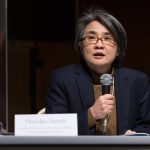 Haruko Satoh is Co-Director of the IAFOR Research Centre set up with the International Academic Forum (IAFOR) at the Osaka School of International Public Policy (OSIPP), Osaka University, where she also teaches. She is currently running a Korea Foundation project on “Peace and Security in Asia: Toward Meaningful Japan-Korea Partnership”. She has worked at the Japan Institute of International Affairs (JIIA), Chatham House, and Gaiko Forum. She has studied at Mount Holyoke College, Johns Hopkins University School of Advanced International Studies (SAIS) – Bologna Center, and University of Cambridge. Her interests are primarily in state theory, Japanese nationalism and identity politics. Recent ublications include: “Great Power Relations and Threats to the Liberal International Order”, Hiroshima Peace Research Journal Vol. 8 March 2021; “Much Ado about a Constitution” in Lam Peng Er & Purnendra Jain (eds), Japan’s Foreign Policy in the Twenty-First Century: Continuity and Change (Lexington Book, 2020); and, “China in Japan’s Nation-state Identity” in Brown & Kingston (eds), Japan’s Foreign Relations in Asia (Routledge, 2018). She is on the international advisory board of the Leiden AsiaCentre, member of the Executive Council of the Asian Political and International Studies Association (APISA) and on the board of the International Academic Forum (IAFOR).
Haruko Satoh is Co-Director of the IAFOR Research Centre set up with the International Academic Forum (IAFOR) at the Osaka School of International Public Policy (OSIPP), Osaka University, where she also teaches. She is currently running a Korea Foundation project on “Peace and Security in Asia: Toward Meaningful Japan-Korea Partnership”. She has worked at the Japan Institute of International Affairs (JIIA), Chatham House, and Gaiko Forum. She has studied at Mount Holyoke College, Johns Hopkins University School of Advanced International Studies (SAIS) – Bologna Center, and University of Cambridge. Her interests are primarily in state theory, Japanese nationalism and identity politics. Recent ublications include: “Great Power Relations and Threats to the Liberal International Order”, Hiroshima Peace Research Journal Vol. 8 March 2021; “Much Ado about a Constitution” in Lam Peng Er & Purnendra Jain (eds), Japan’s Foreign Policy in the Twenty-First Century: Continuity and Change (Lexington Book, 2020); and, “China in Japan’s Nation-state Identity” in Brown & Kingston (eds), Japan’s Foreign Relations in Asia (Routledge, 2018). She is on the international advisory board of the Leiden AsiaCentre, member of the Executive Council of the Asian Political and International Studies Association (APISA) and on the board of the International Academic Forum (IAFOR).
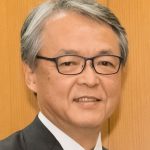 Yoshihide SOEYA is Professor Emeritus of Keio University, from which he retired in March 2020 after serving as professor of political science and international relations at the Faculty of Law for 32 years since 1988. He served as the Director of the Institute of East Asian Studies of the same university for six years until September 2013, and as the Director of its Center for Contemporary Korean Studies for five years until March 2016. He received Ph.D. from the University of Michigan in 1987, majoring in world politics. His areas of interest are politics and security in East Asia, and Japanese diplomacy and its external relations. Dr. Soeya was a Japan Scholar of the Woodrow Wilson Center in Washington D.C. from September 2013 to January 2014, and a Korea Foundation Fellow affiliated with the ASAN Institute in Seoul in March-May 2014. Dr. Soeya also served, in 1999-2000, as a member of the “Prime Minister’s Commission on Japan’s Goals in the 21st Century,” and, in 2010, as a member of “the Council on Security and Defense Capabilities in the New Era,” both in the Prime Minister’s Office. He was also a member of the “Central Council on Defense Facilities” (2000-2009, Agency/Ministry of Defense), and of the Advisory Group of the Ministry of Foreign Affairs (2003-2013). His recent publications in English include ”Constitutional Revision Going Astray: Article Nine and Security Policy,” in Helen Hardacre, et.al., eds., Japanese Constitutional Revisionism and Civic Activism (MD: Lexington Books, 2021); “Middle Power Cooperation in the Indo-Pacific Era,” Issues & Studies, Vol. 56, No. 2 (June 2020); “The Rise of China in Asia: Japan at the Nexus,” in Asle Toje, ed., Will China’s Rise be Peaceful? Security, Stability, and Legitimacy (Oxford: Oxford University Press, 2018); “The Case for an Alternative Strategy for Japan: Beyond the Article 9-Alliance Regime,” in Michael J. Green and Zack Cooper, eds., Postwar Japan: Growth, Security and Uncertainty since 1945 (Washington D.C.: Center for Strategic and International Studies, 2017); “The Evolution of Japan’s Public Diplomacy: Haunted by its Past History,” Jan Melissen and Yul Sohn, eds., Understanding Public Diplomacy in East Asia: Middle Powers in a Troubled Region (London: Palgrave Macmillan, 2015).
Yoshihide SOEYA is Professor Emeritus of Keio University, from which he retired in March 2020 after serving as professor of political science and international relations at the Faculty of Law for 32 years since 1988. He served as the Director of the Institute of East Asian Studies of the same university for six years until September 2013, and as the Director of its Center for Contemporary Korean Studies for five years until March 2016. He received Ph.D. from the University of Michigan in 1987, majoring in world politics. His areas of interest are politics and security in East Asia, and Japanese diplomacy and its external relations. Dr. Soeya was a Japan Scholar of the Woodrow Wilson Center in Washington D.C. from September 2013 to January 2014, and a Korea Foundation Fellow affiliated with the ASAN Institute in Seoul in March-May 2014. Dr. Soeya also served, in 1999-2000, as a member of the “Prime Minister’s Commission on Japan’s Goals in the 21st Century,” and, in 2010, as a member of “the Council on Security and Defense Capabilities in the New Era,” both in the Prime Minister’s Office. He was also a member of the “Central Council on Defense Facilities” (2000-2009, Agency/Ministry of Defense), and of the Advisory Group of the Ministry of Foreign Affairs (2003-2013). His recent publications in English include ”Constitutional Revision Going Astray: Article Nine and Security Policy,” in Helen Hardacre, et.al., eds., Japanese Constitutional Revisionism and Civic Activism (MD: Lexington Books, 2021); “Middle Power Cooperation in the Indo-Pacific Era,” Issues & Studies, Vol. 56, No. 2 (June 2020); “The Rise of China in Asia: Japan at the Nexus,” in Asle Toje, ed., Will China’s Rise be Peaceful? Security, Stability, and Legitimacy (Oxford: Oxford University Press, 2018); “The Case for an Alternative Strategy for Japan: Beyond the Article 9-Alliance Regime,” in Michael J. Green and Zack Cooper, eds., Postwar Japan: Growth, Security and Uncertainty since 1945 (Washington D.C.: Center for Strategic and International Studies, 2017); “The Evolution of Japan’s Public Diplomacy: Haunted by its Past History,” Jan Melissen and Yul Sohn, eds., Understanding Public Diplomacy in East Asia: Middle Powers in a Troubled Region (London: Palgrave Macmillan, 2015).
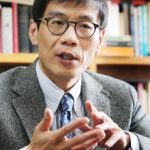 Sung Ho Kim, Department of Political Science, Yonsei University. Prior to his current position at Yonsei, he was a professor of democratic and constitutional theories at Williams College and the University of California at Riverside. Lately, he also taught at Harvard University as Kim Koo Visiting Professor of Government and Keio University’s Faculty of Law as Special Guest Professor. He was a fellow of the Harvard-Yenching Institute, director of the Social Science Research Institute at Yonsei, and advisory board member of the Korean National Diplomatic Academy. His scholarly articles have appeared, among others, in Political Theory, History of Political Thought, Social Epistemology, Stanford Encyclopedia of Philosophy, Journal of Democracy, and IᆞCON: International Journal of Constitutional Law. He is the author of Max Weber’s Politics of Civil Society and Making We the People: Democratic Constitutional Founding in Postwar Japan and South Korea, both published by Cambridge University Press. He also wrote editorial columns for major newspapers in Seoul, still serving on an advisory board of The Chosun Ilbo Daily. He received the Leo Strauss Award (the biennial best dissertation prize in political philosophy) of the American Political Science Association and Ph.D. from the University of Chicago.
Sung Ho Kim, Department of Political Science, Yonsei University. Prior to his current position at Yonsei, he was a professor of democratic and constitutional theories at Williams College and the University of California at Riverside. Lately, he also taught at Harvard University as Kim Koo Visiting Professor of Government and Keio University’s Faculty of Law as Special Guest Professor. He was a fellow of the Harvard-Yenching Institute, director of the Social Science Research Institute at Yonsei, and advisory board member of the Korean National Diplomatic Academy. His scholarly articles have appeared, among others, in Political Theory, History of Political Thought, Social Epistemology, Stanford Encyclopedia of Philosophy, Journal of Democracy, and IᆞCON: International Journal of Constitutional Law. He is the author of Max Weber’s Politics of Civil Society and Making We the People: Democratic Constitutional Founding in Postwar Japan and South Korea, both published by Cambridge University Press. He also wrote editorial columns for major newspapers in Seoul, still serving on an advisory board of The Chosun Ilbo Daily. He received the Leo Strauss Award (the biennial best dissertation prize in political philosophy) of the American Political Science Association and Ph.D. from the University of Chicago.
12:45 PM – 1:30 PM: Networking Session
Day Two: November 10, 2021
Panel Three: Civic Participation in the Asia-Pacific
10:00 AM – 11:30 AM
In the past decade, popular movements in the Asia-Pacific region have led to significant political change. In Korea, the 2016 corruption scandal sparked major popular protests and a catastrophically low approval rating for President Park Geun-Hye, which were critical factors in her impeachment. The 2014 Sunrise Movement in Taiwan saw student protestors occupy the Legislative Yuan and marked the start of the divergence between China and Taiwan. In its 2014-15 debate on the constitution, Japan saw some of the largest protests since the 1970s. Within the last year, Thailand and Myanmar have seen massive popular uprisings in response to nondemocratic exercises of power. Across the Asia-Pacific, how involved are individuals in the democratic process? Outside of elections, to what extent do the voices of the people matter in democratic states in East Asia? How does civic participation affect more formal expressions of politics?
Speakers
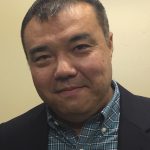 Koichi Nakano is Professor of Political Science, and former Dean (2017-2021), at the Faculty of Liberal Arts, Sophia University. He specializes in the comparative politics of advanced industrial democracies, particularly Japan and Europe, and in political theory. He has a B.A. in philosophy from the University of Tokyo, a second B.A. in philosophy and politics from the University of Oxford, and an M.A. and a Ph.D. in politics from Princeton University. His research has focused on a variety of issues of contemporary Japanese politics from comparative, historical, and philosophical perspectives, including constitutional politics and civic activism; neoliberal globalization and nationalism in East Asia; the Yasukuni problem, “comfort women” issue, and historical revisionism; language, media and politics; amakudari and administrative reform in Japan; decentralization; the cross-national transfer of policy ideas; and a review of the DPJ government. In English, he has published articles in The Journal of Japanese Studies, Asian Survey, The Pacific Review, West European Politics, Governance, and a single-authored book entitled Party Politics and Decentralization in Japan and France: When the Opposition Governs (Routledge, 2010), and the co-edited volume, Disasters and Social Crisis in Contemporary Japan: Political, Religious, and Sociocultural Responses, eds. with Mark R. Mullins (London: Palgrave Macmillan, 2015) and The Democratic Party of Japan: Challenges and Failures, eds. with Yoichi Funabashi (Abingdon: Routledge, 2016). In Japanese, his publication includes Ukeikasuru Nihon Seiji (Rightward Shift of Japanese Politics) (Tokyo: Iwanami Shinsho, 2015), Sengo Nihon no Kokka Hoshushugi: Naimu/Jichi Kanryo no Kiseki (Postwar State Conservatism in Japan: A Study of the Bureaucrats of the Ministry of Home Affairs) (Iwanami Shoten, 2013). He has also frequently commented on Japanese politics for the international and Japanese media, including ABC, BBC, CNN, Reuters, AP, The Economist, The New York Times, The Guardian, and Le Monde. Since 2013, he has been engaged in civic activism in Japan. He has been a key member of the Civil Alliance for Peace and Constitutionalism, the Association of Scholars Opposed to the Security-related Laws, and Save Constitutional Democracy.
Koichi Nakano is Professor of Political Science, and former Dean (2017-2021), at the Faculty of Liberal Arts, Sophia University. He specializes in the comparative politics of advanced industrial democracies, particularly Japan and Europe, and in political theory. He has a B.A. in philosophy from the University of Tokyo, a second B.A. in philosophy and politics from the University of Oxford, and an M.A. and a Ph.D. in politics from Princeton University. His research has focused on a variety of issues of contemporary Japanese politics from comparative, historical, and philosophical perspectives, including constitutional politics and civic activism; neoliberal globalization and nationalism in East Asia; the Yasukuni problem, “comfort women” issue, and historical revisionism; language, media and politics; amakudari and administrative reform in Japan; decentralization; the cross-national transfer of policy ideas; and a review of the DPJ government. In English, he has published articles in The Journal of Japanese Studies, Asian Survey, The Pacific Review, West European Politics, Governance, and a single-authored book entitled Party Politics and Decentralization in Japan and France: When the Opposition Governs (Routledge, 2010), and the co-edited volume, Disasters and Social Crisis in Contemporary Japan: Political, Religious, and Sociocultural Responses, eds. with Mark R. Mullins (London: Palgrave Macmillan, 2015) and The Democratic Party of Japan: Challenges and Failures, eds. with Yoichi Funabashi (Abingdon: Routledge, 2016). In Japanese, his publication includes Ukeikasuru Nihon Seiji (Rightward Shift of Japanese Politics) (Tokyo: Iwanami Shinsho, 2015), Sengo Nihon no Kokka Hoshushugi: Naimu/Jichi Kanryo no Kiseki (Postwar State Conservatism in Japan: A Study of the Bureaucrats of the Ministry of Home Affairs) (Iwanami Shoten, 2013). He has also frequently commented on Japanese politics for the international and Japanese media, including ABC, BBC, CNN, Reuters, AP, The Economist, The New York Times, The Guardian, and Le Monde. Since 2013, he has been engaged in civic activism in Japan. He has been a key member of the Civil Alliance for Peace and Constitutionalism, the Association of Scholars Opposed to the Security-related Laws, and Save Constitutional Democracy.
 Dr Sarah Cameron is a political scientist in the School of Social and Political Sciences at the University of Sydney. Her research focuses on political behaviour, citizen responses to crises, elections, and civic engagement in comparative perspective. Cameron received her PhD in Political Science from the Australian National University. She holds Master’s degrees from the Australian National University and Ashridge Business School. Before joining the University of Sydney she was a Visiting Fellow at Harvard University. Cameron contributes to several leading studies on elections and democracy. She is a Chief Investigator on the Australian Election Study, funded by the Australian Research Council Discovery Project ‘Political Trust and Satisfaction with Democracy in Australia’. She has also contributed to leading comparative studies including the Comparative Study of Electoral Systems, the Electoral Integrity Project, and the Comparative Cross-National Electoral Research Project. Cameron’s recent publications include Electoral Integrity in America (Oxford University Press, 2019), and ‘Civic engagement in times of economic crisis: A cross-national comparative study of voluntary association membership’ (European Political Science Review, 2021). She is the author of major reports on Australian elections, The 2019 Australian Federal Election: Results from the Australian Election Study and Trends in Australian Political Opinion 1987-2019. She has received awards for research, teaching and policy engagement, including the 2021 Mayer Journal Prize for the best article in the Australian Journal of Political Science.
Dr Sarah Cameron is a political scientist in the School of Social and Political Sciences at the University of Sydney. Her research focuses on political behaviour, citizen responses to crises, elections, and civic engagement in comparative perspective. Cameron received her PhD in Political Science from the Australian National University. She holds Master’s degrees from the Australian National University and Ashridge Business School. Before joining the University of Sydney she was a Visiting Fellow at Harvard University. Cameron contributes to several leading studies on elections and democracy. She is a Chief Investigator on the Australian Election Study, funded by the Australian Research Council Discovery Project ‘Political Trust and Satisfaction with Democracy in Australia’. She has also contributed to leading comparative studies including the Comparative Study of Electoral Systems, the Electoral Integrity Project, and the Comparative Cross-National Electoral Research Project. Cameron’s recent publications include Electoral Integrity in America (Oxford University Press, 2019), and ‘Civic engagement in times of economic crisis: A cross-national comparative study of voluntary association membership’ (European Political Science Review, 2021). She is the author of major reports on Australian elections, The 2019 Australian Federal Election: Results from the Australian Election Study and Trends in Australian Political Opinion 1987-2019. She has received awards for research, teaching and policy engagement, including the 2021 Mayer Journal Prize for the best article in the Australian Journal of Political Science.
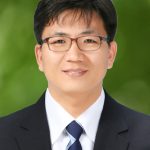 Dr KIM Hyung Jong is an Associate Professor in the Department of International Relations at Yonsei University Wonju Campus. Before joining Yonsei University, he served as an Assistant Professor in the Department of International Relations at the Changwon National University and as a Senior Lecturer in the Department of Southeast Asian Studied at the University of Malaya. He received his Ph.D. degree in Political Sciences from the University of Malaya. His areas of research interest include ASEAN and East Asian regionalism. He has authored a number of journal articles and has presented papers at domestic and international conferences on regionalism and normative matters in international relations.
Dr KIM Hyung Jong is an Associate Professor in the Department of International Relations at Yonsei University Wonju Campus. Before joining Yonsei University, he served as an Assistant Professor in the Department of International Relations at the Changwon National University and as a Senior Lecturer in the Department of Southeast Asian Studied at the University of Malaya. He received his Ph.D. degree in Political Sciences from the University of Malaya. His areas of research interest include ASEAN and East Asian regionalism. He has authored a number of journal articles and has presented papers at domestic and international conferences on regionalism and normative matters in international relations.
11:30 AM – 11:45 AM: Break
Careers Workshop
11:45 AM – 1:00 PM
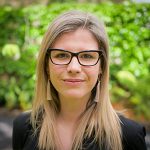 Meg de Ronde is the Executive Director of Amnesty International Aotearoa New Zealand. Meg has been with Amnesty International since 2015 and was Campaigns Director for four years, overseeing human rights campaigning, research, advocacy, youth, media and activism work. Meg has a huge breadth of experience in grassroots volunteering, activism, politics and media. Her work has led to several great successes for Amnesty International, including the campaigns to Double the Refugee Quota and to ensure that Community Sponsorship of Refugees prospers in New Zealand, as well as building the foundations of a domestic research programme. Meg is not only the first woman to be Executive Director of the New Zealand section, but the youngest person to take on the job and one of the youngest of all the Amnesty International sections around the world. With a first class Master of Arts in Politics, Meg is also a dedicated mum to two young boys, alongside being a licensed private investigator, singer and somehow deciding to sign up for a half marathon…and completing it!
Meg de Ronde is the Executive Director of Amnesty International Aotearoa New Zealand. Meg has been with Amnesty International since 2015 and was Campaigns Director for four years, overseeing human rights campaigning, research, advocacy, youth, media and activism work. Meg has a huge breadth of experience in grassroots volunteering, activism, politics and media. Her work has led to several great successes for Amnesty International, including the campaigns to Double the Refugee Quota and to ensure that Community Sponsorship of Refugees prospers in New Zealand, as well as building the foundations of a domestic research programme. Meg is not only the first woman to be Executive Director of the New Zealand section, but the youngest person to take on the job and one of the youngest of all the Amnesty International sections around the world. With a first class Master of Arts in Politics, Meg is also a dedicated mum to two young boys, alongside being a licensed private investigator, singer and somehow deciding to sign up for a half marathon…and completing it!
 Bridi Rice is an international development specialist and this year’s awardee of the Fulbright Scholarship for Not for Profit Leadership. Bridi holds a Master of Politics, Law Degree and Arts Degree and has worked in international development and foreign policy for 15 years, including as Director at the Australian Council for International Development, co-founder of the Asia Pacific Development Diplomacy and Defence Dialogue and as a senior public servant for the Attorney-General’s Department. Bridi is passionate about the intersection of international development, foreign policy and human security – and has just founded a new enterprise: Development Intelligence Lab a fresh platform for inspiration, ideas and debate on the future of Indo-Pacific development cooperation.
Bridi Rice is an international development specialist and this year’s awardee of the Fulbright Scholarship for Not for Profit Leadership. Bridi holds a Master of Politics, Law Degree and Arts Degree and has worked in international development and foreign policy for 15 years, including as Director at the Australian Council for International Development, co-founder of the Asia Pacific Development Diplomacy and Defence Dialogue and as a senior public servant for the Attorney-General’s Department. Bridi is passionate about the intersection of international development, foreign policy and human security – and has just founded a new enterprise: Development Intelligence Lab a fresh platform for inspiration, ideas and debate on the future of Indo-Pacific development cooperation.
****Please note: This event will be held via Zoom. All times listed are Australian Eastern Daylight Time (Canberra, Sydney, Melbourne).
